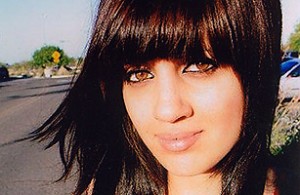If Hosni Mubarak, as was discussed here not long ago, saw himself as the father of his nation, during his demise he came across more like the dotty old bastard who tried to raise the belt one last time but got his ass kicked by his teenager.
Muammar Ghaddafi, on the other hand, is obviously trying out for the role of the father who murders his kids rather than lose control of them.
This may be rare moment of paroxysm in Arab politics, but this same filicide happens, unfortunately, every day within families, not least in the Arab world. And sometimes, here in the United States.
I’ve got a longish and very self-involved story in this week’s Time magazine (in which I mention, without naming it, this blog and, with naming it, the very fine DadLabs and their forays into yoga). I can’t link to it, because, like all my other non-newsy pieces, it’s malingering behind a paywall. But there is an article you should read right now at Time.com by Nadya Labi: An American Honor Killing.
It’s the story of the death of an Iraqi-American teen named Noor al-Maleki, who was run over and killed outside of Phoenix by her father Faleh because she had become, in his eyes, too westernized. Faleh was recently convicted of murder in the case. It’s strong reporting about an awful story, but the final paragraphs provide the real punch in the gut. The Iraqi community, it would seem, learned all the wrong things from Noor’s death:
It is easy for the community to distance itself from Faleh now that he is a convicted murderer. But who spoke up for Noor when she was reportedly being brutalized at home and forced into an arranged marriage? Did any of Faleh’s contemporaries defend her right to dress herself how she wished? Why is Khalaf’s husband so quick to insist that Noor was a virgin and never involved with his son? Why do the teenage girls at al-Rasool mosque scold Noor for violating the precepts of their religion?
The attitudes that fueled Faleh’s rage are widespread in his community. It is no coincidence that Faleh believes that Iraqis in the U.S. and abroad will judge him more kindly if they think it’s an honor killing. “Connect it to honor,” Faleh advised Jamal from jail.
Asked whether the community has taken away any lessons from Noor’s murder, the owner of an Iraqi grocery store in Peoria nods, explaining, “They don’t want their daughters to become like Noor.”
Saher Alyasry, a mother in her mid-30s praying at al-Rasool mosque, speaks out firmly, in Arabic, while her teenage daughter, rocking a newborn, translates. “I think what he did was right. It’s his daughter, and our religion doesn’t allow us to do what she did,” she says. “A guy who cares about his reputation, he should do that because people will start talking about him if he doesn’t.” When asked if honor is more important than love, she responds, “Yes. What’s the point of loving her if she’s bad?”
The story had mentioned earlier that Faleh was a gambler, deep in debt, who didn’t even go to mosque. That he, and his apologists, are allowed to decide that wearing tight jeans is a sin punishable by death but gambling and blowing off services are fine, is appalling. I’m all for the salad bowl theory of immigration, whereby people get to keep their culture and language until they slowly begin to become part of this country. But this tribal crap needs to be checked in with immigration at the door. It is pure darkness–what on earth could compel a father to murder his daughter?–that has no place here.
I am not qualified to debates the merits of western feminism versus cultural sovereignty. I understand we can’t dictate our values to the rest of the world. But I know that having children has taught me–as a human, not as an American–that fatherhood is about caring for and, for a time, providing for and protecting a completely unique individual. Roberto Bolaño got it right: we are graced by the presence of our children and they owe us nothing. That’s just one American view, but it’s somewhere near the mainstream, I’ll bet. So you’ll forgive my cultural absolutism when I say that throttling your child into submission based on batshit duplicitous tribal rules that DO NOT EVEN APPLY IN THIS COUNTRY has nothing to do with honor and everything to do with being an honorless bastard.
Kudos to Labi (and to her editor, former Time Baghdad Bureau Chief Bobby Ghosh) for sticking with the story. Kudos to strong Iraqis like Amal Khalaf, the woman who took in Noor after her family shunned her and who was injured in the attack on Noor. She spoke up and spoke out and paid the price. All shame, however, on that part of the Iraqi-American community that persists in treating its women like goats on Eid, animals to be slaughtered up to God.


Stories like this are heartbreaking. I agree with you – this isn’t about debating cultural norms and values but about simple human decency. My word of advice to those fathers and families who are so upset at their children becoming too westernized while living here in the U.S – Go back to your homeland and do your so-called honor killing on your own soil. Great piece Nathan.